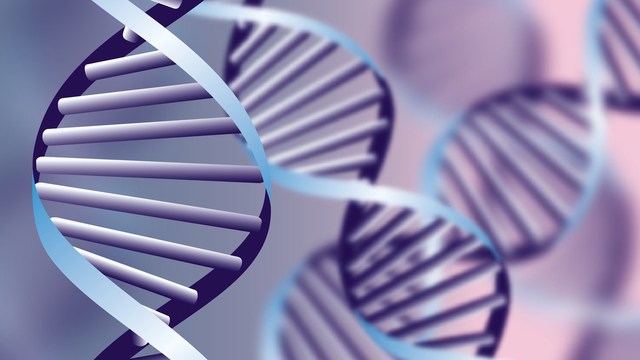 Svetlana Egorova/PhotoSpin
Svetlana Egorova/PhotoSpin
This article is written in memory of Sam Tobias, who passed away on Friday, April 5 from ALD. He was 8 years old.
Definition and Symptoms of ALD
Adrenoleukodystrophy or ALD is a genetic neurological disorder that affects 1 in every 17,900 boys worldwide. It is also known as X-ALD since the defect is transmitted through the X chromosome.
Women are carriers of the disease. Boys are affected because they only have one X chromosome. The second X chromosome in girls protects them against the disease. (1)
Childhood-onset ALD is the most severe of the three forms, with symptoms appearing between 4 and 10 years of age. (2)
The other two kinds of ALD are adult-onset ALD (adrenomyeloneuropathy or AMN) which appears between the ages of 21 and 35, and neonatal ALD. Neonatal ALD is not genetically inherited and can affect girls and boys. (3)
Symptoms for AMN may include progressive stiffness, weakness, loss of coordination or paralysis of the lower limbs and extremities. (1)
Adult-onset ALD progresses more slowly than the classic childhood form. “Almost half the women who are carriers of X-ALD will develop a milder form of AMN but almost never develop symptoms seen in boys [with] X-ALD.” (1)
Symptoms of childhood-onset ALD include (1, 4):
• behavioral changes - abnormal withdrawal or aggressive outbursts, poor memory, poor school performance
• hyperactivity
• visual loss
• learning disabilities
• seizures
• poorly articulated speech
• difficulty swallowing
• deafness
• disturbances of gait and coordination
• fatigue
• intermittent vomiting
• increased skin pigmentation
• progressive dementia (1)
These changes occur due to the breakdown of myelin in the brain. The process is called demyelination. Myelin is crucial to the effective transmission of signals between the nerves.
While the exact relationship between ALD and myelin is still being studied, researchers believe that the buildup of saturated, very long-chain fatty acids (VLCFA) in people with X-ALD provokes an immune response from the body which destroys myelin. When the myelin is destroyed, signals between the body and the brain are impaired, and nerve cells throughout the brain start to die. (1, 2)
“The loss of myelin and the progressive dysfunction of the adrenal gland are the primary characteristics of X-ALD.” (1) Demyelination in ALD is similar to other demyelinating disorders such as multiple sclerosis. (3)
“Boys develop normally until the onset of symptoms occurs. Symptoms typically rival those of attention deficit disorder before serious neurological involvement becomes apparent. The symptoms progress rapidly and lead to a vegetative state within two years, and death anytime thereafter.” (2)
Treatment of childhood-onset ALD
Treatment includes periodic adrenal function testing and administration of adrenal hormones. Other treatment for symptoms and support as the child deteriorates neurologically may include physical therapy, psychological support and special education.
“Lorenzo’s Oil” is a mixture of oleic acid and erucic acid, and can be administered to boys with X-ALD prior to the onset of symptoms to prevent or delay the effects of the disease. This must be done before symptoms emerge. “Lorenzo’s Oil has no beneficial effect in symptomatic boys with X-ALD.” (1)
A bone marrow transplant is also an option for boys who show early signs of the disease. The transplant procedure itself, however, carries risks and is not recommended for those with severe symptoms or those with neonatal ALD. (1)
ALD News and Research
“Studies are currently underway to identify new biomarkers of disease progression to determine which patients will develop the childhood cerebral form of X-ALD.” (1)
“A recent case study in Europe demonstrated that the combination of gene therapy with bone marrow transplantation, using the patient’s own bone marrow cells, may arrest disease progression in childhood cerebral X-ALD. A therapeutic trial in the United States is currently being discussed with the U.S. Food and Drug Administration.” (As of Oct 2012) (1)
“03 April 2013 - …New York legislature approves Aidan’s Law. The law named after Aiden Seeger, who was diagnosed with ALD in 2011, requires ALD to be added to New York’s Newborn Screening Panel.” (5)
“02 April 2013 - …Dr. Scanlan from the Oregon Health & Science University is carrying out a study of sobetirome in X-ALD. He believes: ‘sobetirome may be beneficial to patients with ALD because it will stimulate the production of a gene product called ABCD2 which is very closely related to ABCD1, the defective gene in ALD patients, and ABCD2 can compensate for defective ABCD1. One measure of this compensation is reduction of the elevated VLCFA levels in ALD patients…we also believe that sobetirome may arrest the progression of neurological symptoms in both cerebral ALD and AMN’.” (5)
Sources:
1. NINDS Adrenoleukodystrophy Information Page. National Institute of Neurological Disorders and Stroke National Institutes of Health. Web. Apr 8, 2013.
http://www.ninds.nih.gov/disorders/adrenoleukodystrophy/adrenoleukodystrophy.htm
2. ALD Information. Aldrenoleukodystrophy Foundation. Web. Apr 8, 2013.
http://aldfoundation.org/ald_info.html
3. What is Adrenoleukodystrophy? ALD Foundation Trust. Web. Apr 8, 2013.
http://www.ald.org.nz/what_is_adrenoleukodystrophy
4. Introduction. ALDLife. Web. Apr 8, 2013.
http://www.aldlife.org/patient-information/introduction
5. Latest News. ALDLife. Web. Apr 8, 2013.
http://www.aldlife.org/news-research/latest-news
Reviewed April 9, 2013
by Michele Blacksberg RN
Edited by Jody Smith






Add a CommentComments
There are no comments yet. Be the first one and get the conversation started!